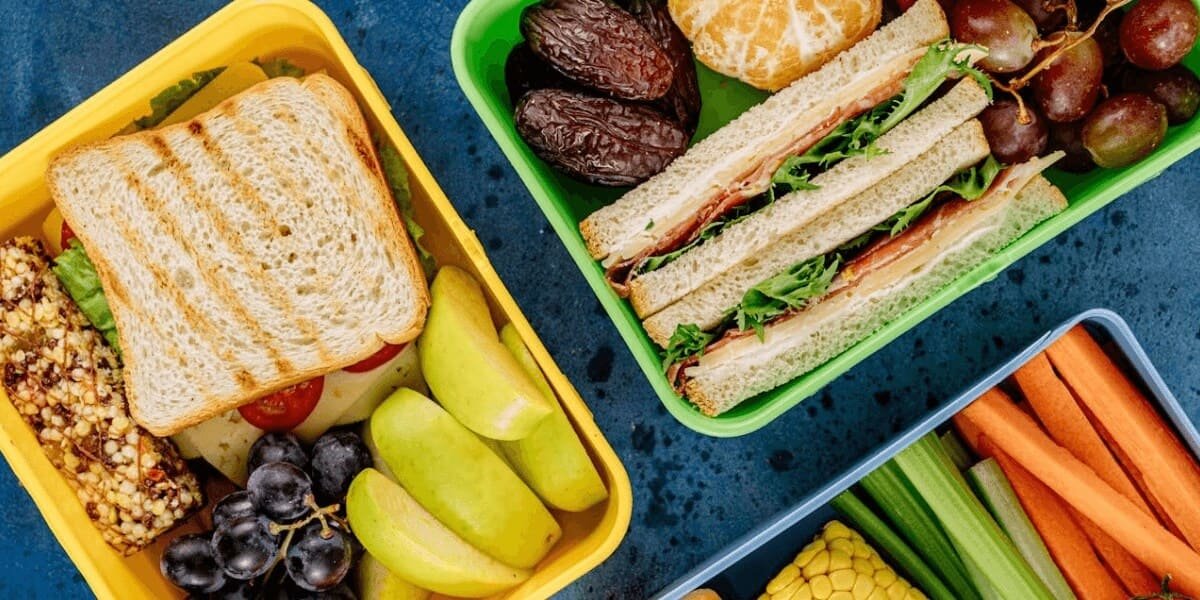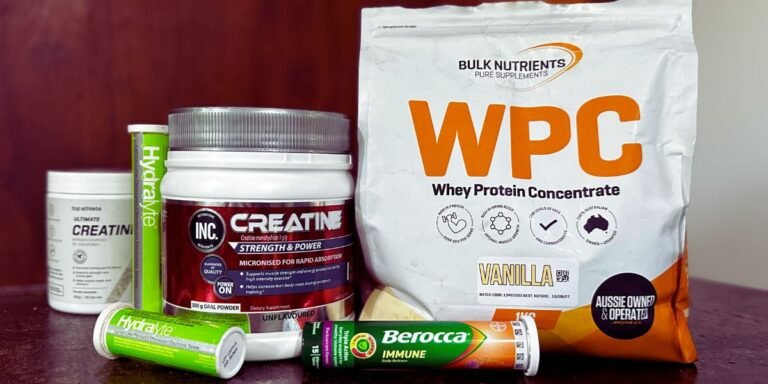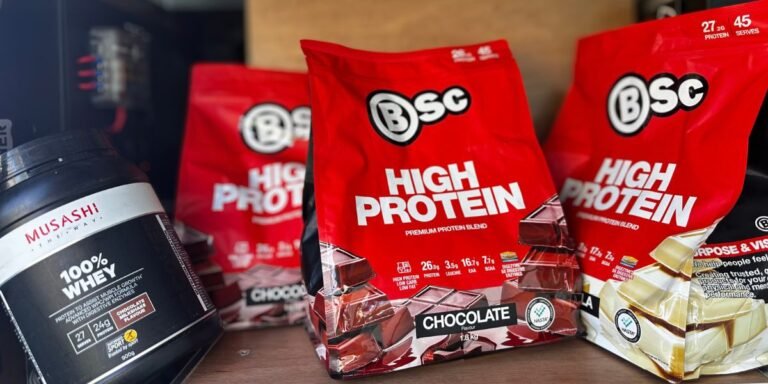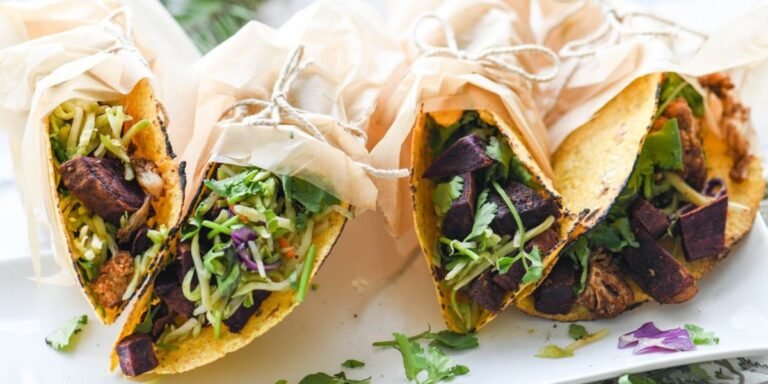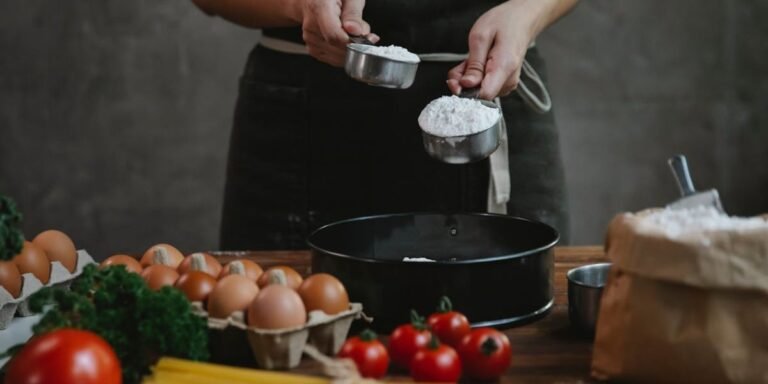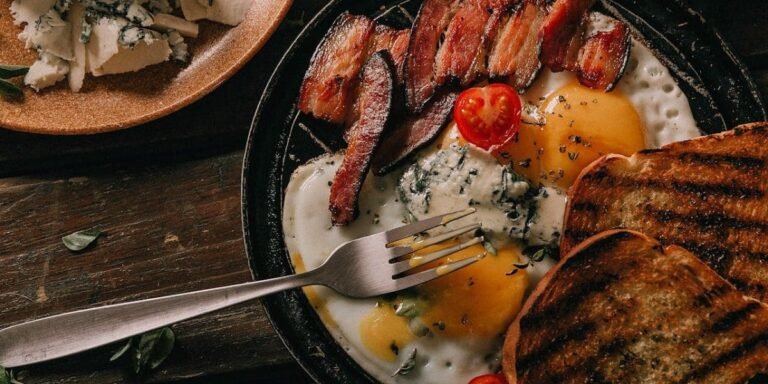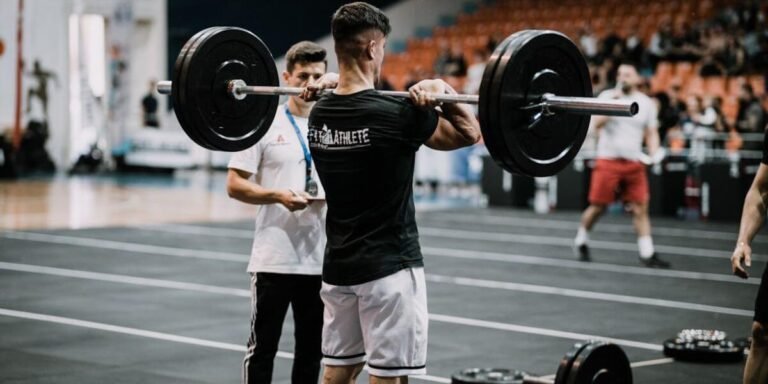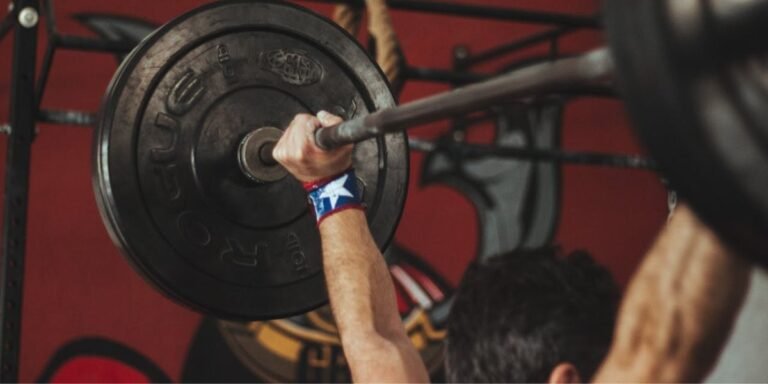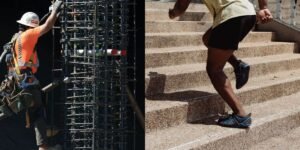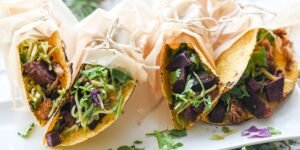Nutrition for Construction Workers is crucial for staying strong, energised, and recovering properly from work.
Whether you’re a construction worker, tradie, or in any physically demanding work, the right food choices can make a huge difference in your energy levels and overall health.
I’ve worked with plenty of tradies who grab junk food, energy drinks, and whatever’s quick, then spend the rest of the day complaining about how wrecked they feel.
What you eat directly affects your energy, focus, and recovery.
I’m here to share what’s worked for me, what I’ve learned from others on-site, and what I’ve found through research. Of course, if you have specific health conditions or dietary needs, it’s always best to consult a professional.
Table of Contents
Disclosure: This post contains an affiliate link. As an Amazon Associate, I earn from qualifying purchases at no extra cost to you.
What to Know About Nutrition
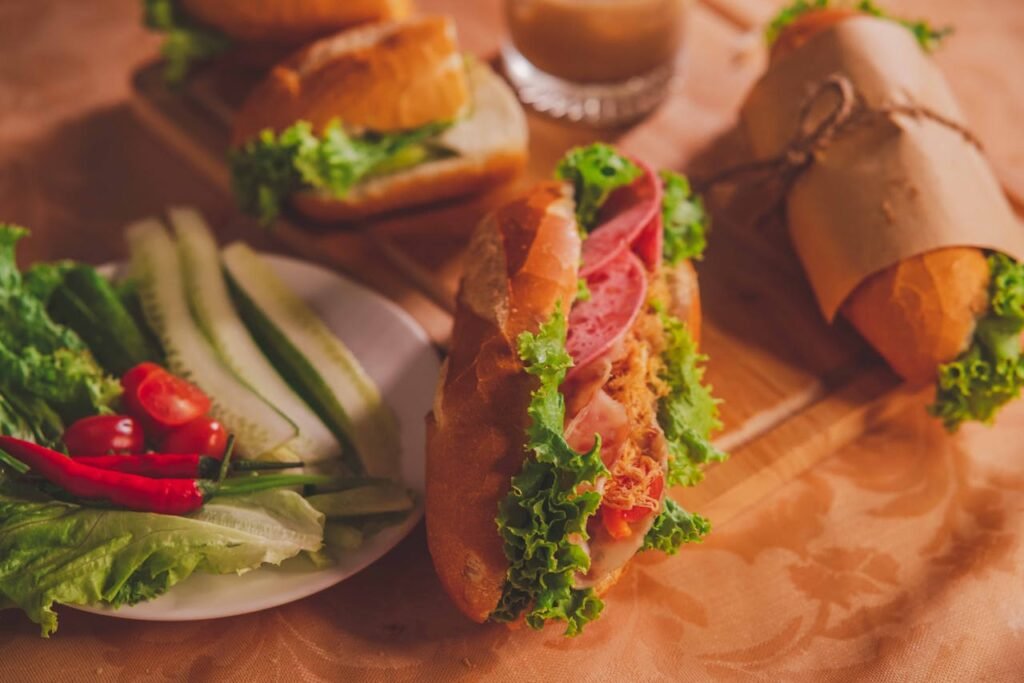
Think of food like fuel. If you put garbage in, you’ll feel like garbage. If you eat good, you will feel good.
Nutrition is more than just eating to satisfy hunger; it’s about giving your body the right nutrients to get you through the day.
Different foods have different effects, some giving you energy on the job, while others will help with recovery at home and overall health.
Nutrients in food fall into two main categories:
- Macronutrients: Carbohydrates, Proteins, and Fats
- Micronutrients: Vitamins and Minerals
Macronutrients: Carbohydrates, Proteins and Fats
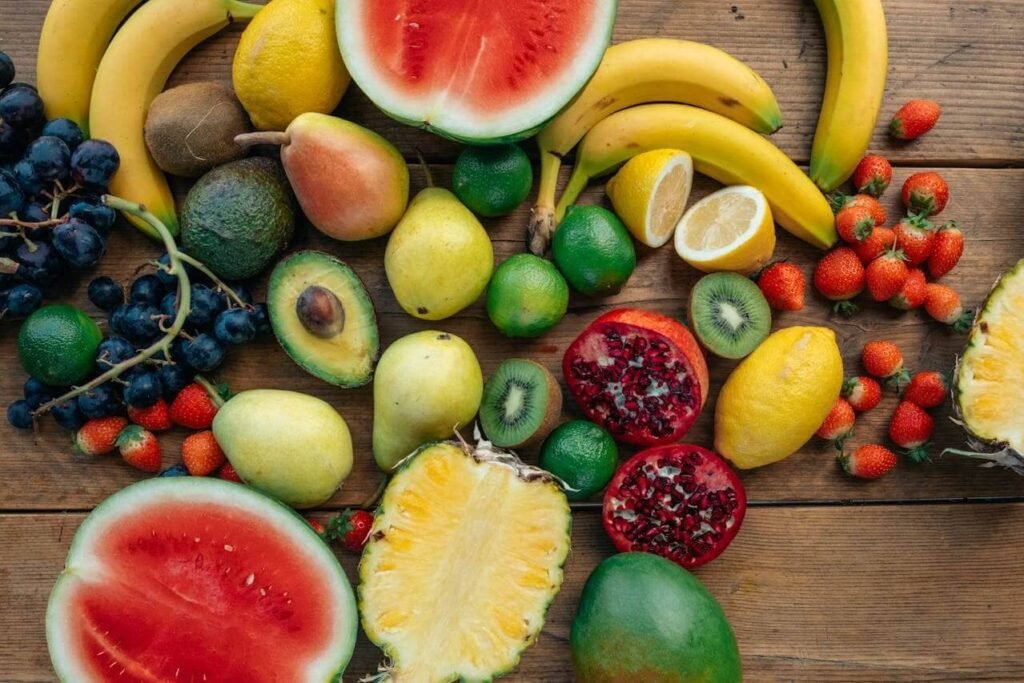
Macronutrients, often referred to as “Macros,” are the foods required in large amounts in our diet to provide energy and support bodily functions.
The three macronutrients are carbohydrates, proteins, and fats.
In a construction worker’s diet, each is just as important and all play a role in your health.
Carbohydrates
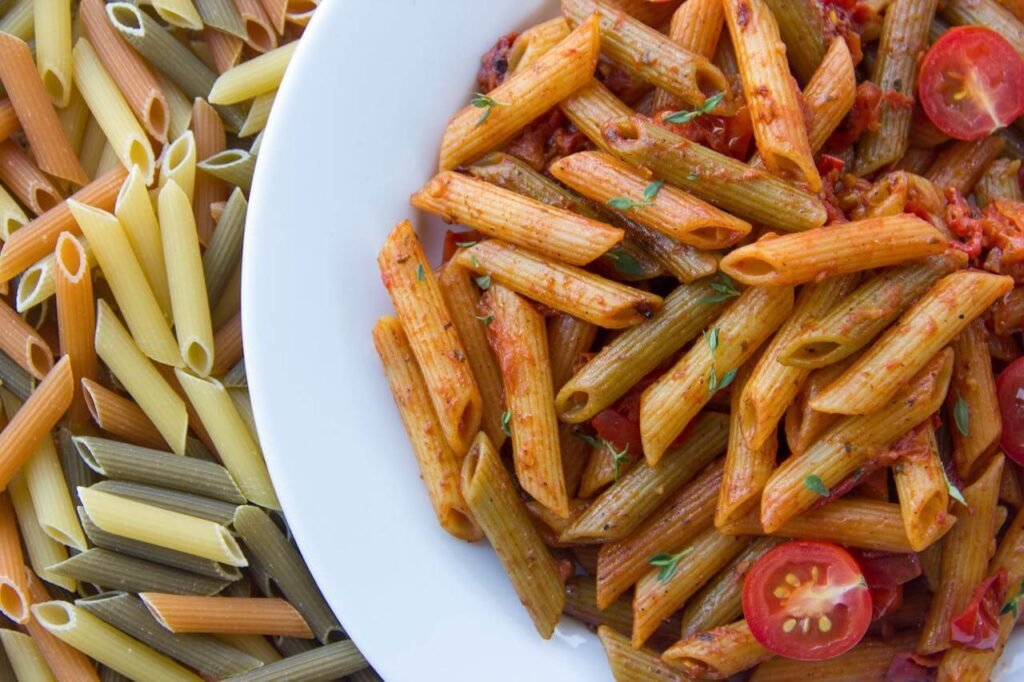
Carbohydrates are the body’s primary energy source, making carbs essential for tradies performing heavy labour. (source)
There is no reason to avoid carbs, especially as you burn so many while working. They make a great food option for energy on-site, as long as you choose the right one.
There are two main types of carbs: simple and complex carbs.
Simple carbs (sugars)
- Such as sugars: Sucrose, Glucose, and Fructose.
Complex carbs
- Starches
- Fibres
Best Carb Sources for Tradies:
Eating mainly complex carbs will be more filling, but it is still important to have some simple carbs as part of a balanced diet, and it’s better to get them from non-processed foods (such as fructose from fruit).
- Whole grains (brown rice, oats, whole wheat pasta, bread, quinoa)
- Fresh fruit (bananas, apples, berries, oranges, etc.)
- Dried fruit (dates, apricots, sultanas, raisins etc.)
- Vegetables (carrots, potatoes, leafy greens, peas and beans etc.)
Best Time to Eat Carbs:
- Breakfast: Complex carbs (oats, whole-grain cereal) for sustained energy.
- Lunch: A mix of complex and simple carbs to fuel the rest of the day. (wholegrain sandwich and a piece of fruit)
- Dinner: Complex carbs at dinner, especially if they are high-fibre options like whole grains, beans, and vegetables.
A study found that participants experienced higher fatigue and lower alertness one hour after sugar consumption, among other things.
TIP:
Avoid too many high sugary snacks. Relying on sugary snacks can lead to energy crashes at work.
Protein
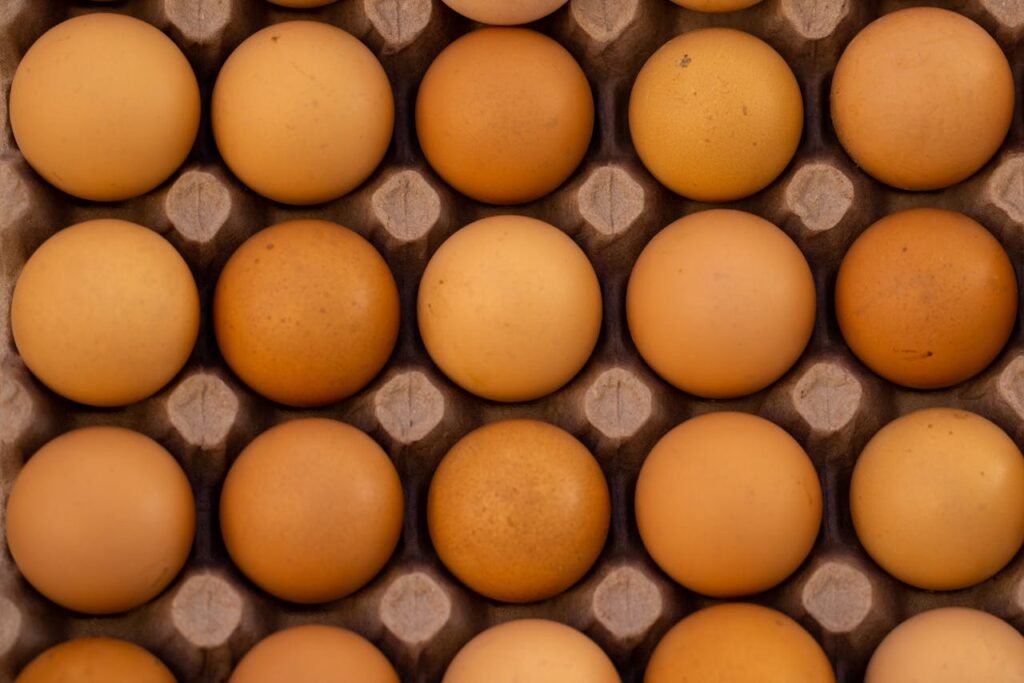
Eating the right protein is essential for tradies’ muscle repair and recovery, especially as you are lifting, carrying, and just moving all day.
The easiest protein to eat before, during and after work is complete protein sources, such as meat, eggs, dairy, and fish, which contain all nine essential amino acids that the human body cannot produce on its own. (Source)
Incomplete proteins, typically found in plant-based sources like beans, grains, and nuts, lack one or more essential amino acids, which is why it’s critical to combine multiple sources to form a complete protein profile.
Research suggests that consuming 1.6 – 2.0 g of protein per kg of body weight per day is not only safe but may also enhance adaptations and support muscle recovery and maintenance.
Eating enough protein has a long list of benefits. Find more here.
Best Protein Sources for Tradies:
- Lean meats (chicken, turkey, beef)
- Tinned Fish (tuna, sardines, salmon)
- Boiled Eggs
- Beans and lentils
- Plant-based proteins (tofu, tempeh)
- Protein powders
Best Time to Eat Protein:
- Breakfast: Crucial for muscle maintenance, especially as you age (I found protein powders the easiest before work)
- Lunch: Supports energy levels, makes you feel more full and satisfied.
- Dinner: Essential for overnight muscle repair.
Fats
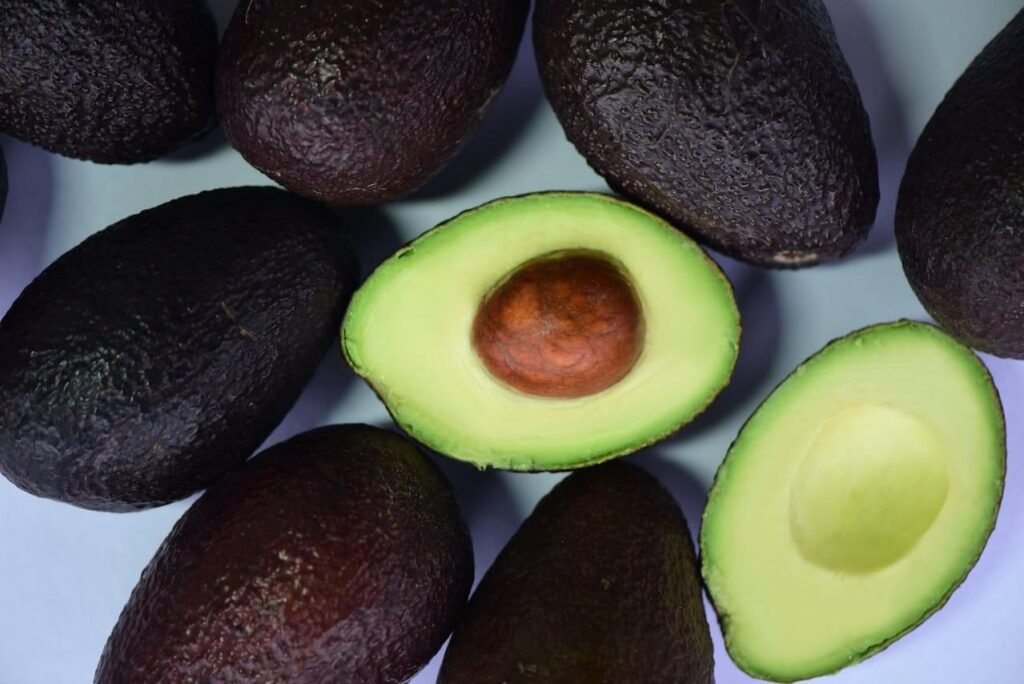
Healthy fats, like those found in Avocados, olive oil, fatty fish, and nuts, provide sustained energy, support brain function, reduce inflammation, and improve heart health.
Omega-3s and Omega-6s are healthy essential fats that the body can’t produce on its own. (Source)
Omega-3s (found in fatty fish, nuts, and seeds) help reduce inflammation and support muscle recovery, but most people don’t get enough.
Omega-6s (found in vegetable oils and processed foods) are already abundant in most diets.
Avoid trans fats (found in processed foods) and limit saturated fats (found in fatty meats and full-fat dairy), as they can increase health risks.
To be at your best for work, prioritise healthy fats (like omega-3s and 6s) while limiting unhealthy ones, like fast food for lunch (more under Best Fast Food Choices for Tradies).
Best Fat Sources:
- Nuts and seeds (almonds, walnuts, chia seeds)
- Fatty fish (tuna, sardines, salmon, mackerel)
- Avocados
- Olive oil and coconut oil (in cooking)
Best Time to Eat Fats as a Tradie:
- Snacks during the day (nuts, trail mix)
- With lunch for sustained energy (part of your balanced meal)
- Use healthy cooking oils for dinner (olive oil for roasting, coconut oil for stir-fries)
Micronutrients: Vitamins & Minerals
Micronutrients (vitamins and minerals) are crucial in overall nutrition for construction workers, helping with energy production, muscle function, and recovery.
Unlike macronutrients (carbs, protein and fats), which provide fuel, micronutrients keep the body running efficiently.
Tradies face unique challenges regarding physical exertion, exposure to the elements, and long hours on the job.
For example, the need for certain minerals like magnesium and potassium increases with muscle activity, as they help manage muscle contraction and recovery. (Source)
How To Get More Vitamins & Minerals
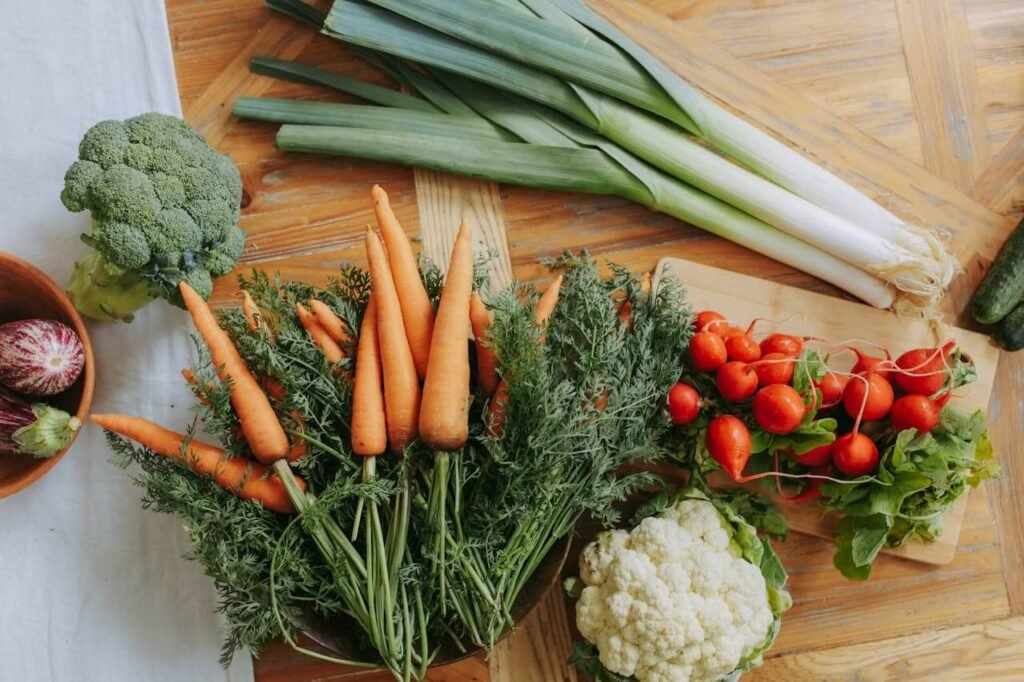
- Eat a Variety of Colourful Fruits and Vegetables
Incorporating a range of colourful fruits and vegetables into your meals provides a broad spectrum of vitamins, minerals, and antioxidants.
Aim for a “rainbow” plate to ensure you’re getting a good mix of essential nutrients.
- Focus on Nutrient-Dense Foods
Choose nutrient-dense options like leafy greens, cruciferous vegetables, and fruits, which are packed with vitamins A, C, K, and folate.
These help maintain healthy skin, bones, and immunity, which is crucial for anyone working outdoors.
- Prioritise Magnesium and Potassium-Rich Foods
Magnesium is essential for muscle function, while potassium helps maintain fluid balance and muscle contraction.
Including foods like leafy greens, nuts, seeds, and bananas can help replenish these key minerals.
- Consider Multivitamins or Supplements
While whole foods should be your primary source of micronutrients, a high-quality multivitamin can help fill any gaps in your diet, especially when you’re on the go and need an extra nutritional boost.
- Stay Hydrated
Micronutrients are more efficiently absorbed when your body is properly hydrated.
(more on this below under, How to Stay Hydrated on Site)
Meal Prepping for Construction Workers: Simple Ideas
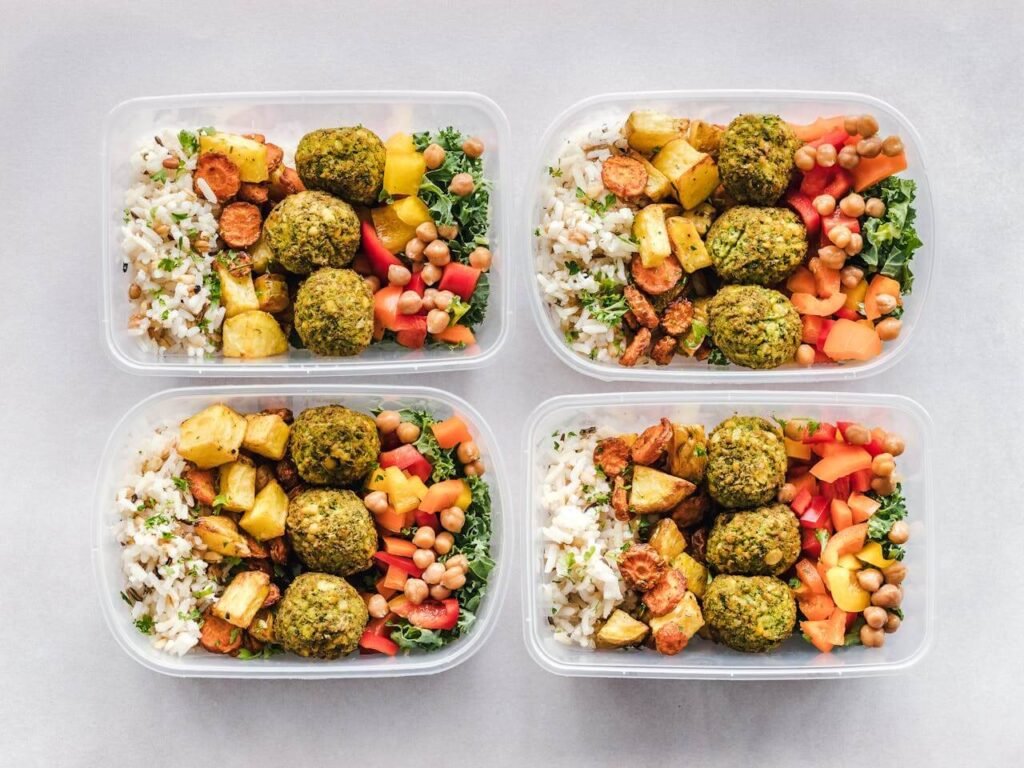
Meal prep doesn’t have to be a full-on Sunday cooking session, although that does work well for some people, as it is a time-efficient way of cooking.
We have covered this topic in more detail in our article, Meal Prep For Tradies: 21 High-Protein Meals, where we cover meal prepping ideas for breakfast, lunch and dinner.
Here are a few different meal prep options that work well:
- Full cooking session – freeze meals, make a week’s worth on the weekend.
- Leftovers from last night – The easiest meal prep, just plan dinners.
- High-protein sandwiches or wraps – Chicken, meats, tuna or cheese with whole grain bread. Easy backup.
- Canned tuna/salmon with rice and veg – Cheap, easy, and high in protein. Microwave meal (using packet rice)
One of the simplest ways is to make extra at dinner and then take the leftovers for lunch the next day. I found doing this worked best for me, as long as you plan out the dinners for the week on the weekend.
Otherwise, stick to easy, high-protein meals that require minimal effort and can be easily stored, made in advance or bought.
I’ve compiled a full list of lunch ideas for tradies, so be sure to check that one out for plenty of quick and nutritious lunches.
Best Fast Food Choices for Tradies
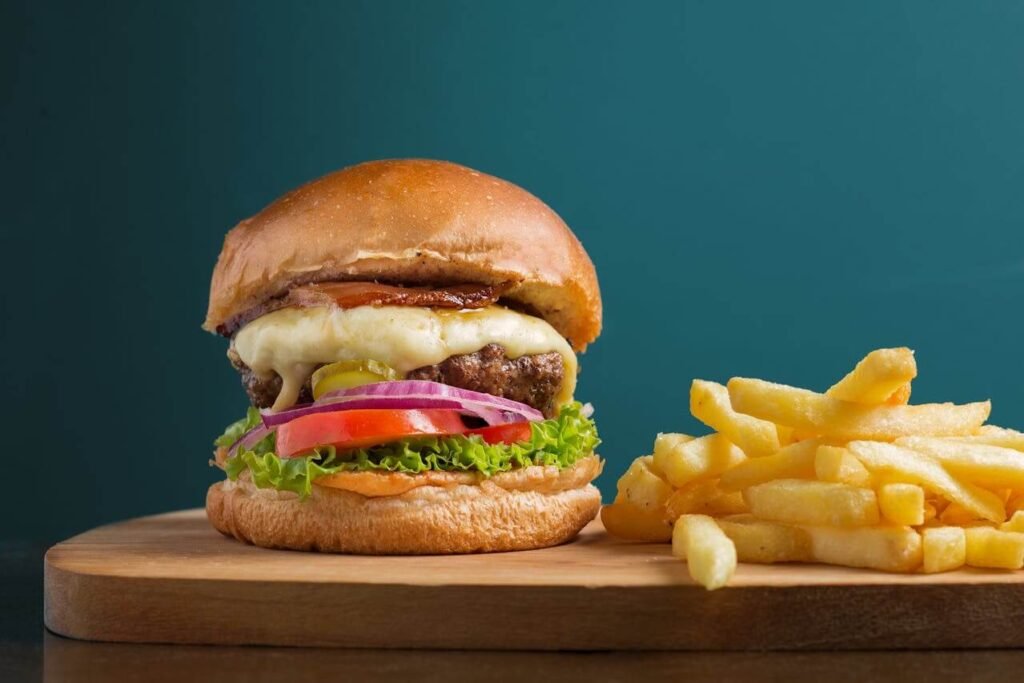
Look, sometimes you don’t have time to plan or prepare, and fast food is the only option.
It’s not about being perfect, just making better choices when you can.
Here are 5 examples of how to make better choices:
| Instead of This | Get This |
| Greasy burgers & chips | Grilled chicken wrap or burger with a side of salad |
| Deep-fried chicken | Grilled chicken with rice and veg |
| Soft drinks | Water or sugar-free electrolyte drinks |
| Meat pies & sausage rolls | Sushi rolls or a lean meat sandwich |
| Regular fish and chips | Grilled fish with half the chips and a side of salad. |
TIP:
All of these reduce the amount of fats and sugar, simply fewer processed foods.
Smart Snacking: What to Eat at Smoko
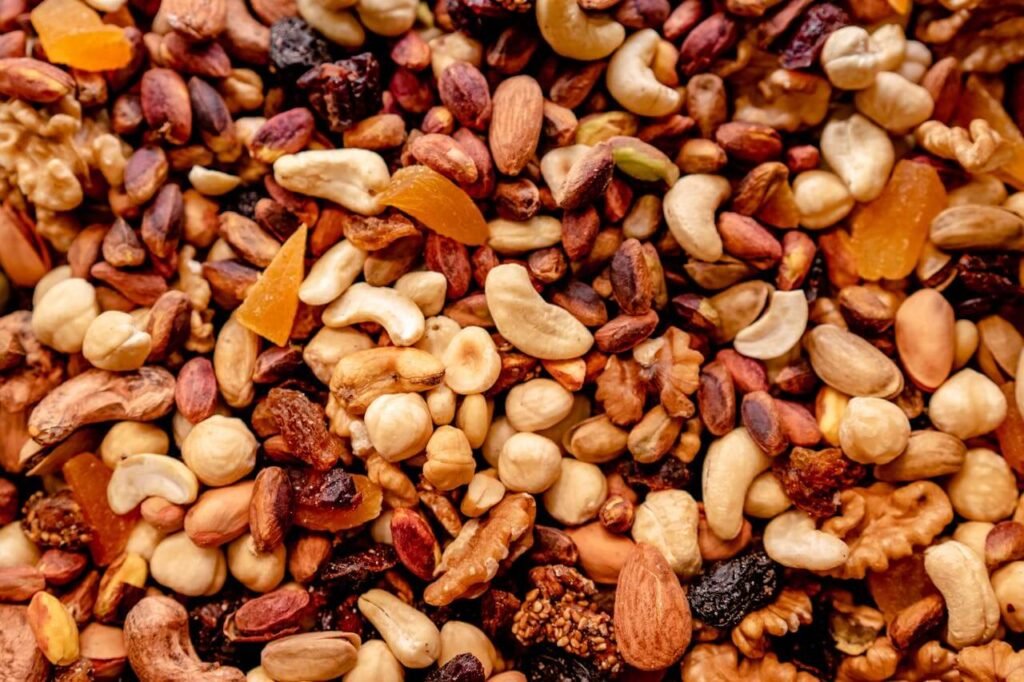
Snack time (or smoko) is the perfect chance to refuel and eat one of your favourite Nutritious snacks.
These should be quick, portable, and packed with protein, healthy fats, and quality carbs to get you through until lunch.
My top 5 nutritious snacks for tradies are:
- Fresh fruit (bananas, apples, grapes) – Easy and portable.
- Trail mix – Nuts and dried fruit for energy – a large variety.
- Protein bars/shakes – Quick protein fix and very filling (they are at most servos)
- Crackers and cheese (Whole grain) – Carbs, protein, and healthy fats
- Up&Go (high-protein version) – Convenient for busy days.
Caffeine: Coffee & Energy Drinks
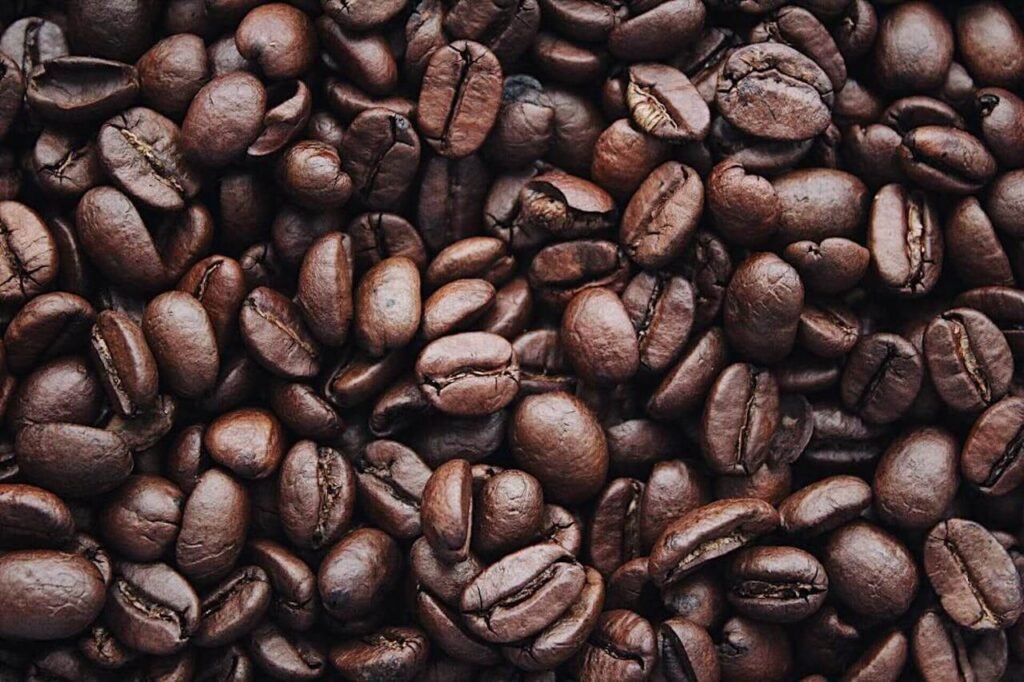
A lot of tradies rely on caffeine to get through the workday, whether it’s coffee, pre-workout, or energy drinks.
Caffeine is proven to boost alertness, but it can also mask fatigue and affect your sleep quality, recovery and performance on the job.
Caffeine, in general, affects people differently. One morning, coffee is fine for most, but consuming too much, especially late in the day, can disrupt sleep in particular. Aim for at least no caffeine 6 hours before you sleep.
Overdoing it with caffeine can also lead to dehydration (which is already a concern for tradies working in hot or physically demanding conditions).
Extra Points:
- 1-2 cups of coffee per day? Generally fine for most people. Test yourself, do you get anxious or feel alert?
- 3+ cups of coffee or multiple energy drinks? You might be masking fatigue; better sleep and food could help.
- High-sugar energy drinks? These often contain caffeine as well and can cause an energy spike and crash; opt for sugar-free versions and keep an eye on the caffeine amount, if you need them.
How to Stay Hydrated on Site
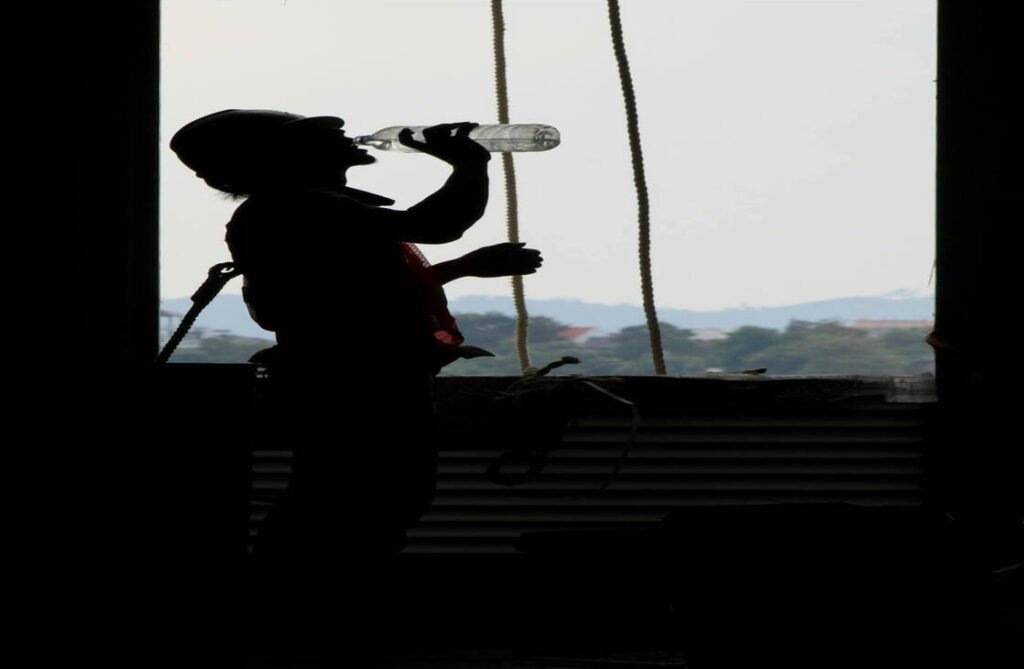
Dehydration means fatigue, cramps, heat exhaustion, impaired recovery and creates a real risk for your safety on site.
Just drinking water often isn’t enough, as your body also needs electrolytes like sodium to replace what is lost.
Sweat loss can be up to 10–12 litres per day, and sweat contains sodium and chloride, both an essential electrolytes.
Electrolytes are essential minerals, and there are 7 electrolytes in total. (source)
You get them from foods like nuts, dairy, and leafy greens or electrolyte tablets or powders as a quick boost when sweating heavily.
Everyone loses salt (sodium) through sweat. Factors like genetics, climate, and fitness levels make some people more of a “salty sweater.”
Research shows that workers in hot conditions can lose 4.8–6 grams of sodium (12–15 grams of salt) over a 10-hour workday, and this amount can be even higher for some.
TIP:
Some signs could be salt stains on your shirts, or if your sweat tastes salty.
Tips for staying hydrated:
- Carry at least a 1-2L bottle – If it’s with you, you’re more likely to drink it.
- Have a backup 5-10L water container – Keep one on site or in the car, to make top-ups easier.
- Electrolyte supplements when sweating heavily – Electrolytes can come in tablet or powder forms.
- Get electrolytes from food – Bananas (potassium), nuts/seeds (magnesium), and salty foods like popcorn or salted nuts.
- Try lemon water – Mix lemon juice with water for a refreshing option with multiple benefits.
Electrolyte Supplements:
It’s often much quicker, easier and safer to use a supplement form, especially once you are dehydrated, as getting a higher dose from food only can be difficult.
Electrolyte supplements can come in different forms:
- Tablets – Most portable and clean (no messing around scooping powder into your drink bottle onsite).
- Powder forms – Good for buying in bulk and easy to make your own premix.
- Premix drink – Good for convenience (e.g. Gatorade Sports Drinks).
My favourite go-to electrolyte in summer is a tablet form, specifically the Hydralyte in the lemon lime flavour, which makes my water taste like lemonade (when you add a few), so having a “sweet drink “while also keeping me hydrated.
Find one you like and use it on those hot days, it’s an easy win for hydration! You can also choose from a wide range here.
Summary
Nutrition for Construction Workers doesn’t have to be complicated. Staying on top of your nutrition, hydration, and caffeine intake can make a massive difference in how you feel and perform on-site and every day.
By making smarter food and drink choices, you’ll recover faster, have more energy, and feel better both at work and at home.
The one thing we didn’t dive into here is alcohol. While it’s an important factor in overall health, I’ve kept the focus on what you’re eating and drinking at work to fuel your body properly. Alcohol can affect recovery, hydration and overall health, so it’s best to limit it if you want to stay in top shape.
Start making small upgrades to your daily routine and see how much better you feel.
Your future self will thank you!
Looking to take things even further? If you’re serious about improving your health and fitness on the job, don’t miss our guide on How to Stay Fit as a Tradie.
Keep reading:
References
- Jéquier E. Carbohydrates as a source of energy. Am J Clin Nutr. 1994 Mar;59(3 Suppl):682S-685S. doi: 10.1093/ajcn/59.3.682S. PMID: 8116550. Available at: https://pubmed.ncbi.nlm.nih.gov/8116550/
- Fernando I, Groves M. Sucrose, Glucose, and Fructose: What’s the Difference? Healthline. Updated on October 19, 2022. Available at: https://www.healthline.com/nutrition/sucrose-glucose-fructose
- Mantantzis K, Schlaghecken F, Sünram-Lea SI, Maylor EA. Sugar rush or sugar crash? A meta-analysis of carbohydrate effects on mood. Neurosci Biobehav Rev. 2019;101:45-67. doi:10.1016/j.neubiorev.2019.03.016. Available at: https://www.sciencedirect.com/science/article/pii/S0149763418309175
- Campbell B, Kreider RB, Ziegenfuss T, et al. International Society of Sports Nutrition position stand: protein and exercise. J Int Soc Sports Nutr. 2007;4:8. Published 2007 Sep 26. doi:10.1186/1550-2783-4-8. Available at: https://pmc.ncbi.nlm.nih.gov/articles/PMC2117006/
- Campbell B, Kreider RB, Ziegenfuss T, et al. International Society of Sports Nutrition position stand: protein and exercise. J Int Soc Sports Nutr. 2007;4:8. Published 2007 Sep 26. doi:10.1186/1550-2783-4-8. Available at: https://pmc.ncbi.nlm.nih.gov/articles/PMC2117006/
- Gunnars K. 10 Reasons to Eat More Protein. Healthline. Updated on February 9, 2023. Available at: https://www.healthline.com/nutrition/10-reasons-to-eat-more-protein
- National Heart Foundation of Australia. Fats, Oils, and Heart Health. Last updated 19 March 2024. Available at: https://www.heartfoundation.org.au/healthy-living/healthy-eating/fats-oils-and-heart-health
- National Institutes of Health. Omega-3 Fatty Acids and Health. NIH Office of Dietary Supplements. 2023. Available at: https://ods.od.nih.gov/factsheets/Omega3FattyAcids-HealthProfessional/
- Tardy AL, Pouteau E, Marquez D, Yilmaz C, Scholey A. Vitamins and Minerals for Energy, Fatigue and Cognition: A Narrative Review of Biochemical and Clinical Evidence. Nutrients. 2020;12(1):228. Published 2020 Jan 16. doi:10.3390/nu12010228. Available at: https://pmc.ncbi.nlm.nih.gov/articles/PMC7019700/#:~:text=For%20instance%2C%20one%20small%20cross,exercise%20%5B115%2C117%5D
- Institute of Medicine (US) Committee on Military Nutrition Research; Marriott BM, editor. Food Components to Enhance Performance: An Evaluation of Potential Performance-Enhancing Food Components for Operational Rations. Washington (DC): National Academies Press (US); 1994. 20, Effects of Caffeine on Cognitive Performance, Mood, and Alertness in Sleep-Deprived Humans. Available from: https://www.ncbi.nlm.nih.gov/books/NBK209050/
- Shrimanker I, Bhattarai S. Electrolytes. [Updated 2023 Jul 24]. In: StatPearls [Internet]. Treasure Island (FL): StatPearls Publishing; 2025 Jan-. NIH. Available from: https://www.ncbi.nlm.nih.gov/books/NBK541123/
- PubMed Central. Bates GP, Miller VS. Sweat rate and sodium loss during work in the heat. J Occup Med Toxicol. 2008;3:4. Published 2008 Jan 29. doi:10.1186/1745-6673-3-4. Available at: https://pmc.ncbi.nlm.nih.gov/articles/PMC2267797/
- Healthline. Benefits of Lemon Water. Medically reviewed by Jerlyn Jones, MS MPA RDN LD CLT, Nutrition — Written by Annette McDermott — Updated on January 19, 2024. Healthline. Available at: https://www.healthline.com/health/food-nutrition/benefits-of-lemon-water

